This article has been written as part of the Classic Movie Dogathon running February 19-22 and hosted by the Classic Film & TV Cafe. Submissions from other participating sites may be found HERE. I’ve chosen a title from my favorite period, the 1930’s, which is more concerned with man’s general feeling towards his best friend than it is with a specific film pooch such as Asta or Lassie. The Voice of Bugle Ann (1936) is also the story of sporting dogs in the world of foxhunting in America, a sport I too misunderstood until attempting this piece. Enjoy!
This is Lionel Barrymore’s character Spring Davis on the stand defending himself against murder charges. Spring attributes his modified version of the quote to former Missouri Senator George Graham Vest, who spoke similar words in an 1870 case against a sheep farmer who had killed a foxhound belonging to his client. Vest’s speech not only won the case, but resulted in a statue of a foxhound bearing a placard with the text of Vest’s “A Tribute to the Dog” being placed outside of the Warrensburg, Missouri courthouse.“The best friend a man may have in the world can turn agin him. A man’s son or his daughter that he’s raised the best way he knows how may turn agin him. Folks that he trusts more than anyone else in the world can turn out to be snakes in the grass. A man can lose all his money just when he needs it the most. Folks that are cheering a man most when he’s successful is the first one to heave a rock at him when he falls down. The only absolutely unselfish friend a man can have, one that will never be ungrateful or treacherous is his dog. Yes sir, a man’s dog will stand by him rich or poor, sick or well. He’ll sleep on the cold ground, don’t make no difference. Wind or snow, all he asks is just to stand by him. He’ll kiss the hand that ain’t got no food to give him; he’ll guard the sleep of a pauper just like he was a king. And when all his other friends is gone there you’ll find his dog. A man might not have no roof to his head; he’d be friendless and homeless, and all the faithful dog asks is just to stand by him. Guard him agin any danger, that he kin. And when it’s all over, a man can lay in Potter’s Field in a grave that ain’t got no headstone, there you’ll find his dog. With his eyes sad, but open and watchin’. With his head between his paws, just waitin’ …”
Adapted from a story by MacKinlay Kantor, The Voice of Bugle Ann takes the details of that trial as its basis, but with a major difference: After the sheep farmer’s threats and the disappearance of his prized fox hound, Bugle Ann, Spring Davis confronts the farmer, Jacob Terry (Dudley Digges), and shoots him dead. He’s tried and convicted of murder, despite the words of Senator Vest. Spring does himself no favors as he winds up his version of the Vest speech:
“… Oh, yes sir, Judge, I’d seen that more than once. I’d kill any man that killed a friend of mine for no reason and a hound’s just as much a friend as any man, ‘cept he ain’t got none of a man’s faults. No sir, I ain’t denying I killed Jake Terry cause he killed Bugle Ann. I didn’t want to do it, Judge, I just had to.”
After the opening credits a fox races across the screen trailed by a pack of hounds who make various yips, cries and yowls as they pursue. Soon we settle on a group of men camped around a fire with Barrymore’s Spring Davis unquestioned leader of the pack. Also on hand are Spring’s contemporary Cal Royster (Charley Grapewin) and each of their sons, Bake Royster (Henry Wadsworth) and Spring’s boy, Benjy Davis (Eric Linden). Tagging along is a visitor, the insurance man, Mr. Tanner (William Tanner), presumably just as out of place as all of us non-Missourians, and thankfully so because he asks all of the questions we’d want to ask.
As the experienced hunters listen to their hounds out on the chase Spring remarks that it’s “Gettin’ sweet.” Benjy agrees and Mr. Tanner’s curiosity gets the best of him so he asks what they mean. “It sweats,” Spring says with Benjy clarifying that the hounds are onto the fox’s scent. Mr. Tanner knows enough to mention that he’s aware that a dog sweats through it’s mouth, but he incorrectly assumes a fox does so as well. He’s corrected and told a fox sweats through his feet which gives the hound a clear trail to follow, especially on a chase when its feet pound the ground harder and harder as he runs.
Shushing Mr. Tanner at every opportunity he thinks he’s found to hawk his health insurance the men instead discuss the various cries in the night that distinguish each dog by its own particular howl. “You people get everything by sound, like it were on the radio,” Mr. Tanner says. Spring chuckles and replies with what’s an important distinction between what is thought of as traditional foxhunting and what the Missouri men practice: “We don’t ride no horses and we don’t wear no funny caps. We just raise hounds and train ’em for the hunt.”
I can see the appeal. For a hunt this sounds about as humane as possible, far more than I would have expected from the 1930’s, that’s for sure. The man gather around the fire and set the dogs loose. They don’t ride and shoot at the fox as I would have expected, nor do the hounds even finish the fox off: “Oh we never kill the fox,” Spring says. “He just holes up when he gets tired and the hounds will come home.” The sport for the men comes from knowing their individual hounds and judging how they account for themselves in the hunt by the various sounds.
Much of what I could find about the current sport in America is more organized than the informal hunt that Spring and boys enjoy. The hunters do ride horses, require a hunting permit and wear traditional gear, but the only guns carried contain blanks and actual kills are reported as extremely rare, occurring only when the hounds become a bit overzealous and corner their quarry rather than chasing it into a hole or up a tree. “It’s not a blood sport,” says Bridlespur Hunt Club senior member, Gene Deutsch. “You’re on an animal watching two animals at play,” Despite numbers the fox is said to always be at advantage over his pursuers.
In a 1991 interview with OzarksWatch, Shannon County, Missouri fox hunter Swiney Rayfield actually painted a picture closely resembling the world that The Voice of Bugle Ann takes us to. When asked what exactly fox hunting is, Rayfield says, “The term ‘fox hunting’ is misleading and confusing. I’ve hunted foxes all my life and I never killed a fox. It’s really just a fox chase. It’s just listening to your dogs on the chase. No true fox hunter ever killed a fox. You go to hear those dogs run. You build a fire, socialize with your fellow fox hunters, and listen to the dogs run. Fox hunters take pride in their dogs. Each dog has a different ‘mouth,’ and every hunter knows his own dogs’ mouths, as well as the different mouths in the pack.”
After we’ve been given a taste for the hunt, Spring’s wife, called simply Ma and played by Spring Byington, which had the potential to make the proceedings a bit confusing (Spring is married to Spring), interupts the evening’s proceedings to let her husband know their hound Molly Pitcher is giving birth to a litter of pups back home. As Spring–Davis not Byington (see?)–excuses himself, a befuddled Mr. Terry exclaims, “Do you have to be mid-wife too?” Spring Davis’ reply is that, “There’s nothing about foxhounds I ain’t.”
Molly Pitcher births five pups by Spring’s count, though the poor gal uses the last of her strength to retrieve the sixth, the runt of the litter that Spring soon names Ann. With Molly gone Spring and Ma are going to have to feed the litter by bottle and Spring winds up taking a special liking the little Ann who follows him around and wins his heart. “She’s got a voice like a little rabbit squeak,” Benjy Davis comments about the high pitched yip of his pa’s prized pup.
Spring and Benjy train the litter for the hunt with Benjy racing ahead of them dragging a fox skin on a string. The dogs gain their voices as they chase from behind with Ann stunning the men when she lets out an off-noise that sounded to me like a seal barking. “A bugle voice. Ann’s got a bugle voice,” Spring says with some wonder. He races to tell Ma about Ann’s voice and she asks, “What’s a bugle voice?” Spring replies, “Just music. Just plain music, that’s all.”
Since he was on hand that special night when Bugle Ann was born the insurance man, Mr. Tanner, is invited back when the time comes for her first hunt. As Spring talks up Bugle Ann the others steer conversation towards the new man in the neighborhood, Jacob Terry (Dudley Digges). Terry is widower to one of their own, the Camdens, and now living in Camden house with his daughter, Camden Terry, played by Maureen O’Sullivan.
Word is that Mr. Terry is a sheep farmer and has already put in an order for some posts and wire to pen in his flock. This concerns our hunting friends because of the potential damage any wire could do to their hounds. When the insurance man asks why a fence would be a problem, Spring tells him that some foxes hate a fence, which will mess up the hunt. But others love it, which is worse, because a hound could get tangled and caught on the wire if the fox runs through. “Nobody ever put up a fence like that in these parts.”
Our first glimpse of Jacob Terry provides all the warning we’re going to need. Cal (Grapewin) had heard he wasn’t a very nice fellow and Dudley Digges is out to prove it in every scene as he plays the part. While the hounds yelp in the background Terry growls at his daughter, Camden, that “I ain’t gonna have those dogs running over my property.”
The next day Spring leads a group of men over to the Terry’s and while Camden is sweet enough and immediately catches Benjy Davis’ (Linden) eye, old Jacob Terry comes out barking. He introduces himself with the always pleasant greeting of “Well, what do you want?” before confirming his plans for a wove wire fence. The hunters try to be reasonable while Terry glares at them and snaps at Benjy to put down the bucket he’d picked up to carry for Camden.
“Hounds ain’t the only thing that’s going to get hurt if they go sneaking around my property, ” Terry warns.
“Ain’t nobody going to get hurt, Mr. Terry. Unless you want it,” replies Spring. The men head off.
The next hunt brings another confrontation and Jacob Terry grows nastier towards daughter Camden at home as she defends the claims of the hunters. She is after all a Camden by birth and while Jacob Terry prefers sheep the Camdens were an old foxhunting family from way back themselves. “Your mother was always more interested in dogs than she was in me,” Jacob says to Camden. By the time of the following hunt Camden’s protests earn her a smack across the face from her father after which she packs up and runs away. Later that night old Cal hears a horrible yip and is convinced that Jacob Terry killed one of the hounds.
This leads to the confrontation which sees Spring Davis shoot Jacob Terry dead. It’s after this that Spring winds up in court where he quotes Senator Vest’s famed “Eulogy on the Dog” on his way to being convicted of murder.
Spring’s use of Senator Vest’s words as his main defense is unfortunate and turns out to be exactly what the prosecuting attorney (Jonathan Hale) had hoped for. “Now do you know why I let him talk?” he asks his assistant, who replies, “He’s hanged himself.”
What never did get brought up in court was that nasty old Jacob Terry also held a shotgun in his hand during their confrontation and he had just begun to raise it towards Spring and his crowd with a threat when Spring fired the deadly shot. Of course this is all going to eventually be sorted out, though that resolution isn’t very satisfying in legal terms.
Intrigue arises some time after the gavel falls when Ma is awoken by the unmistakable cry of Bugle Ann. She wakes Benjy and he hears it too as do others right down to Spring in his cell where the distant call causes him nightmares that fellow inmates awaken him from and try to give a little comfort. “It’s unnatural to believe in ghosts,” Benjy says as The Voice of Bugle Ann takes on a few moments of mystery.
The question of Bugle Ann’s voice winds up being answered in a more satisfying way than Spring’s eventual release from prison and The Voice of Bugle Ann winds to a happy conclusion for all but Jacob Terry.
Filmed by MGM in late 1935 and directed by Richard Thorpe, The Voice of Bugle Ann was shot mostly on location in the San Fernando Valley and Burbank, CA. Thorpe also directed several background shots and scenes of the hunt in Missouri’s Ozark Mountains. The film premiered February 15, 1936 and received positive reviews, most noting that it would best be enjoyed by dog lovers. Frank S. Nugent took is a step further in his February 27 New York Times review writing that “Out of it, more importantly, has come a picture that should be excellent entertainment for every lover of dogs and still should be entirely satisfactory to those who can take them or leave them alone.”
Nugent praised Lionel Barrymore for “a splendid performance as the hound-loving, drooping mustached Spring Davis,” and I’ll go a step further and say Barrymore is pretty much the whole show here except for the brief moments Dudley Digges has on screen.
Spring Davis brings us the best and worst of Lionel Barrymore as he hams it up big time as the folksy old fox hunter but manages to touch you a little as well through his love of his dogs. There’s a scene where he holds Bugle Ann as a pup to his face where you can almost see his reluctance and read his mind thinking I’ve got to let this mutt lick me? Once that little tongue starts flapping across his cheek though you can see old Barrymore enjoys the moment. His lengthy courtroom speech recalled to my mind his far more wellspoken Oscar winning turn on the other side of the stand as Stephen Ashe in A Free Soul (1931).
Dudley Digges is at his cranky best and you have no doubts about his Jacob Terry willfully putting a bullet into man or beast. He did seem to hold back some when he slapped O’Sullivan, but you can’t blame Digges for pulling that punch even if ole’ Jake Terry would have swung for the fences with it. As usual Digges is easy to despise.
The Eric Linden role was supposedly originally cast as Jimmy Stewart, who was instead working on Wife vs. Secretary (1936) at this time, very early in his career. While Linden doesn’t bring a lot to the part of Spring’s son, Benjy, in retrospect I think the part would have become a bit distracting to the 21st Century viewer had it gone to the beloved Stewart. Instead Linden’s Benjy does what’s necessary of him and takes nothing away from the story while doing so. His romance with O’Sullivan’s Camden Terry is a bit flat, but blame the screenwriters there rather than Linden or O’Sullivan, who plays the part well even if she seems a bit too vengeful towards her father in the end.
And what of the pups? We see quite a few, but only get to know a handful, of which Bugle Ann of the title is the most important of the bunch. I’m a dog lover myself, consider me one of those appeased by the story as the period reviews would expect. As such I can totally understand Spring’s attachment to his top hound though I guess it never occurred to Spring to call the police in response to his suspicions over Bugle Ann. But then again such a sensible modern solution would have seemed extremely out of place in the The Voice of Bugle Ann. Departing armed and leading a mob was definitely the wrong choice though!
That said, Spring tried to tell Cal and the others that he’d prefer to talk to Terry alone about the matter but they insisted upon accompanying him. The mob aspect is never brought up in court and surely wouldn’t have done Spring any favors had it been, but thinking back to movies like Fury (1936) or The Ox-Bow Incident (1943) it was interesting to see the filmmakers try to justify the presence of a mob through the action of this story.
The Voice of Bugle Ann takes us to a setting that was foreign to me as I’m sure it is to most viewers. At least those outside of the Ozark Mountains. It’s not the glamorous world we most associate with movies when we look for escape, but it does provide an escape of an entirely different kind and helps to clarify a sport still in need of better understanding all these years later. If you were drawn to this article because you’re a member of one of the 171 registered packs of hunters listed by the Masters of Foxhounds Association of North America as of 2007, well then, I hope I did okay by you here. I’d especially like to recommend The Voice of Bugle Ann for you.
That goes for my friends who love Classic Movies as well. The Voice of Bugle Ann will take you to another world which I was surprised to learn still exists. Referring back to that 1991 Swiney Rayfield quote it still even bears a remarkable resemblance to world Lionel Barrymore’s Spring Davis inhabited in the 1930’s! But at the very least, like the old reviewers told it, The Voice of Bugle Ann is a winner for any dog lover and remains good entertainment even if you don’t count yourself among that group.
Once more this article about The Voice of Bugle Ann was composed as part of the Classic Movie Dogathon. Please go HERE to see other participating websites and the subjects they chose to cover for the Dogathon.
Sources and Further Reading
- “Fox Hunting.” Wikipedia. Web 20 Feb. 2012. < http://en.wikipedia.org/wiki/Fox_hunting >.
- “Fox Hunting and Fish Gigging: Conversations with Seaman and Swiney Rayfield.” OzarksWatch. Winter 1991. Web 20 Feb. 2012. < http://thelibrary.org/lochist/periodicals/ozarkswatch/ow50316.htm >.
- George Graham Vest.” Wikipedia. Web 20 Feb. 2012. < http://en.wikipedia.org/wiki/George_Graham_Vest >.
- McEowen, Bob. “The Thrill of the Chase.” Rural Missouri. Web 20 Feb. 2012. < http://www.ruralmissouri.org/06pages/06JanFoxhunt.html >.
- Nugent, Frank S. “The Voice of Bugle Ann (1936).” The New York Times. 27 Feb. 1936. Web 20 Feb. 2012. < http://movies.nytimes.com/movie/review?res=9C02E2DA123BE33BBC4F51DFB466838D629EDE >.
- “What Is Fox Hunting?” Marlborough Hunt Club. Web 20 Feb, 2012. < http://www.marlboroughhuntclub.com/index.php?option=com_content&view=article&id=2&Itemid=3 >.


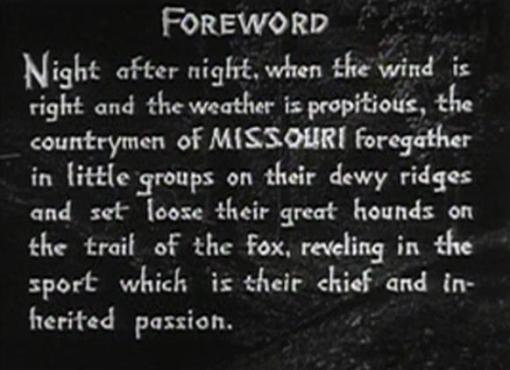
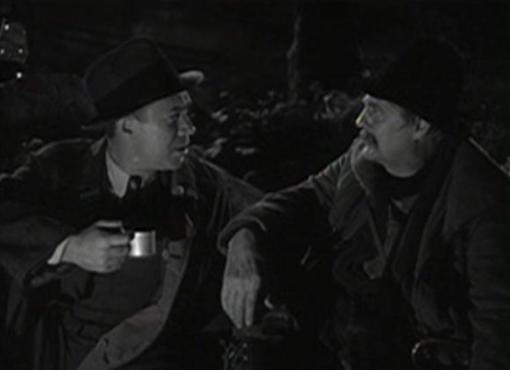
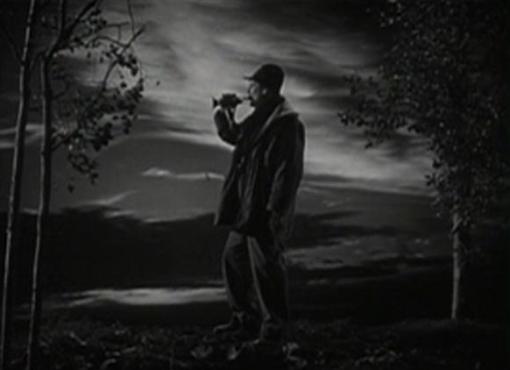


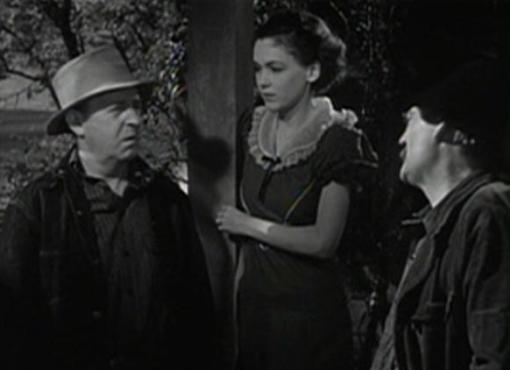

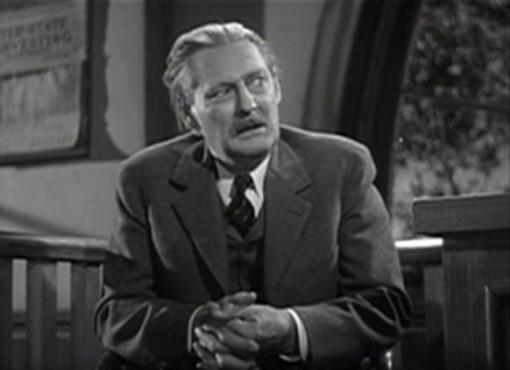

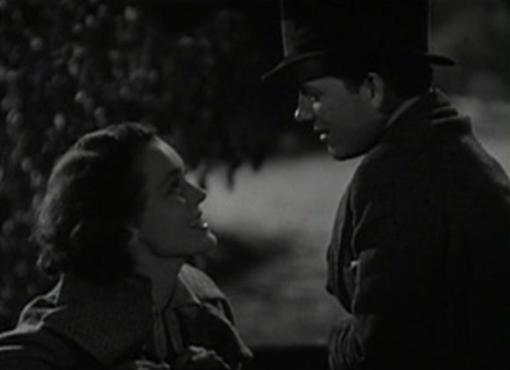



Cliff,
Release the Hounds! : )
I so enjoy your reviews so I was thrilled you signed on for the Dogahon. And you chose a Barrymore film I haven’t seen. (You did mention the lack of availability)
Interesting bit of trivia and comments by Rayfield. You really don’t ever see a fox trapped then killed. It’s always about the chase and riding out with your dog. We’ve seen so many scenes depicting that.
My ex husband had Coonhounds that he kept at another location (for obvious reasons and their loudness) but he would go out raccoon hunting every winter and it seems they rarely treed a raccoon. It really was men getting out with their dogs for a night of running around the woods. He loved those dogs and spent so much time caring for them. I named one of them Trapper because if you wanted a raccoon you would have to trap her, he certainly wasn’t going to help. (My husband didn’t find that very amusing)
I’ve always believed that Lionel B was better suited for this type of role, kicking about in work clothes, a ‘man’s, man”. He always looked out of sort, awkward playing a man of upper class, stuffed in those suits. He certainly had a way of making you relate to whatever situation he was going through as here, with the care, affection he had for his beloved hunting dogs.
A beautifully done review here Cliff!
Page
Thanks, @google-a87ed4bb000f464cc65c3c09e2f1597b:disqus I knew there’d be some who actually had experience at this sort of thing–I hope I explained it well enough for others, like myself, who haven’t.
I agree about Lionel Barrymore too, Page. To name some of his better known roles, from Kringelein in Grand Hotel, Peggoty in David Copperfield, and Captain Disko in Captains Courageous, there’s no doubt that salt of the earth suits him well!
I was truly fascinated by your post. You have shared remarkable research on a film neither I nor, I suspect, many others have seen. The topic is very emotional and I can understand the feeling that Bugle Ann’s owner had. Very thought provoking and well done!
Thanks very much @ca4316180395059352df815990b6de56:disqus – It’s been awhile, but The Voice of Bugle Ann airs on TCM every so often. Often enough that I’m hopeful Warner Archive presses it sometime soon!
Cliff ~ may I begin by saying, after I wipe the tears from my eyes;
I knew a blog titled “Immortal Ephemera” would present a gem of a forgotten
film. I can’t say that “hounding” is a subject I would have pursued, but your
film review and the background information is fascinating. The simple fact that
stateside fox hunts differ so widely from the image of traditional British fox
hunting was a real eye opener. Classic films at best entertain with amusing or
though provoking stories; this one captured a time and place faded into memory
and presented a long held tradition that continues today.
Thanks so much @f0934d8c4fde0ba73d071bc8610f86a2:disqus — I honestly didn’t imagine fox hunting would have been a subject I would have pursued myself, but the movie took me there. I’d seen this one a few times and was so happy the Dogathon finally gave me reason to write about it. Until this time around when I followed the leads a little better than I would on a general viewing, I always assumed Bugle Ann was presenting some movie version of a fox hunt. Apparently not! Thanks again, really appreciate the kind comment!
Cliff, I was looking forward to your review and it didn’t disappoint! Well-written and informative, you provided some fine background materials on a movie that sounds quite intriguing. The description of Ann’s “voice” amused me because my wife and I once adopted a rescue Labrador, who had obviously been a hunting dog. Whenever she saw a rabbit or squirrel, her bark changed to a distinctive, higher pitched one. I had never read the “Tribute to a Dog,” but I’m a dog person (like you) and can relate. They are special animals that are to be cherished. As for Lionel, there was always little bit of ham, but he was almost always enjoyable, too. Thanks for participating in the Dogathon!
Thanks @fbd605d6fe2904a9d487321b05f4035c:disqus so glad this one was open to non-CMBA sites (though I suppose I could have done a re-post of Howling Dog at Warren William if it wasn’t!). I was just glad I was able to rewind enough times to figure out Lionel was saying “Senator Vest” otherwise I wouldn’t have run into any of the “Tribute to a Dog” info!
Lovely piece, Cliff, and I hope I will get to see this movie sometime soon. I have always been a huge fan of MacKinlay Kantor’s books, and I loved Bugle Ann. Your background material is superb, and the article very well-written. Thanks for the experience!
Thanks @facebook-100000321314895:disqus – I always mean to read the source material before a post like this, I think I last did so with The Razor’s Edge, but typically I wait too long to place my Amazon order and that happened here. Glad to hear it’s a good read as well, perhaps one of these days I’ll grab it.
This was a great post – very informative. We had no idea how a real fox hunt actually works. Thanks!
Thanks @67e94e711b7d86e489ba7cd4b051755c:disqus –Neither did I until just a couple of days ago!
This sounds like a movie that one would never forget. It seems that every movie with Lionel Barrymore is amazing classic. Nothing like the baying of the hounds!!
Hi @7fd2b3d2b415ef99707aea721d5721ea:disqus — Well, I don’t want to oversell it, “amazing classic” it ain’t. But I do think that the unique setting helps push it above the routine programmer label that most would likely stick on it. I’m with you for the most part though, if Lionel Barrymore’s in it I know I’m going to have a good time!
Hi Cliff,
What an amazing post. I feel like I just had a lesson in history, culture, geography, sporting and film – most of which I am severely deficient in. I have to admit, I’d never even heard of this movie. Will make a note and add to my “must watch” list for sure. Also – and I’m more than a little embarrassed to admit this – I’ve never even given a thought to the fact that fox hunting in something that actually exists, other than in the movies. Lovely tribute to a sport and movie you are obviously fond of.
Glad this Dogathon introduced me to your site!
Aurora
Hi Aurora and thanks for the wonderful comment. I honestly didn’t realize how popular the sport remained in America and I, like others, thought the sport part was shooting the fox! How wrong I was. Perhaps, I was most struck by the 1991 quote from the fox hunter because it perfectly described the portrayal of fox hunting I’d just watched. I’m so glad I followed the little clues this little movie provided.
Thanks again!
Although referenced several times as in “The Ozarks” much of the Missouri portion of this film was actually shot on the farm of Tom Bash near Mendon Mo. in the North Central part of the State. Tom was Sheriff of Jackson County Mo. (Kansas City) at the time and had prior been Judge of the Eastern District. Tom was born and raised on the same property and held many events over the years such as Coon & Fox Hunts. A regular attendee was Harry Truman. The original cabin built on a part of the farm known as the Lost Quarter in the early 1920’s is still there and is still an operating hunting camp and residence of the current owners. Much of the history of the place has been passed down from owner to owner and is still there in the forms of Pictures & manuscripts including some pictures that include the actors in this film.
That is the contact info to the Farm where this Movie was shot in Mo.
Keith is referring to his comment following directly below this one.
Thanks for adding the interesting history @facebook-1607293817:disqus — It might say I edited your comment but all I did was add an “s” to the site URL that you’d left out.
Nicely done. I am quite frustrated I can only see clips and this and that of the film! On my list to try and track down somehow, somewhere…